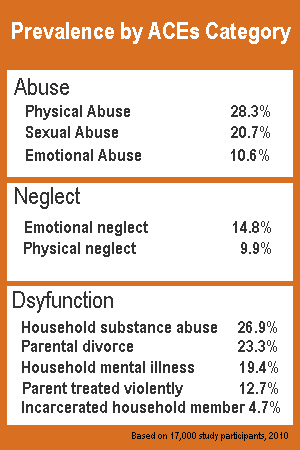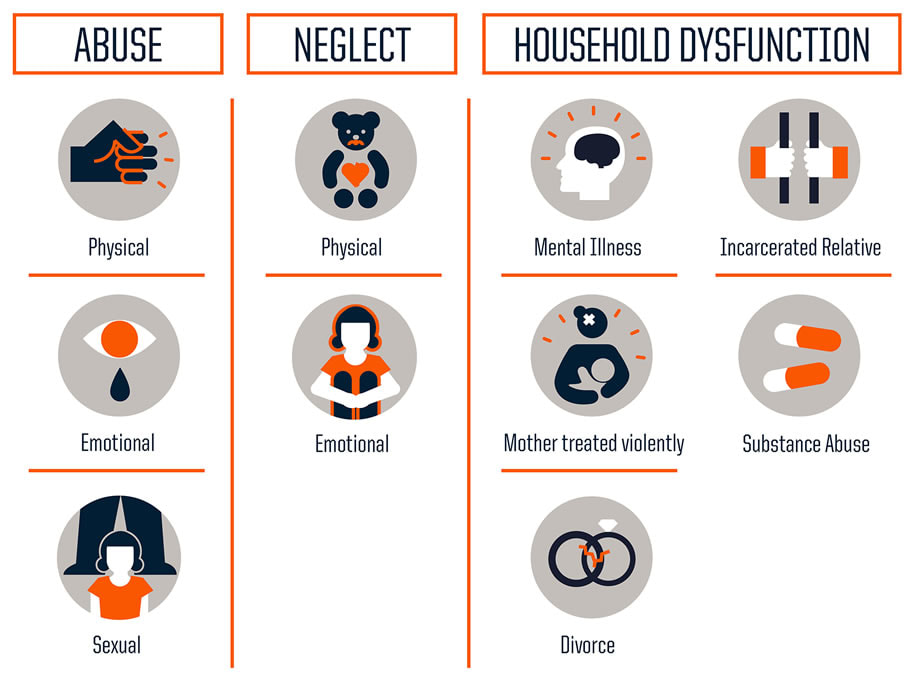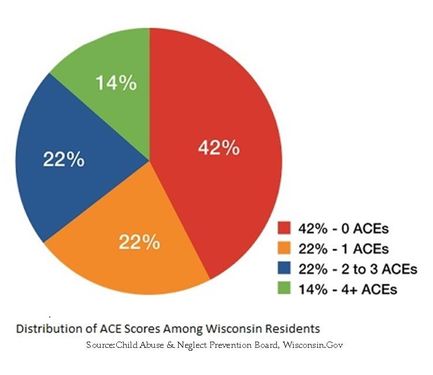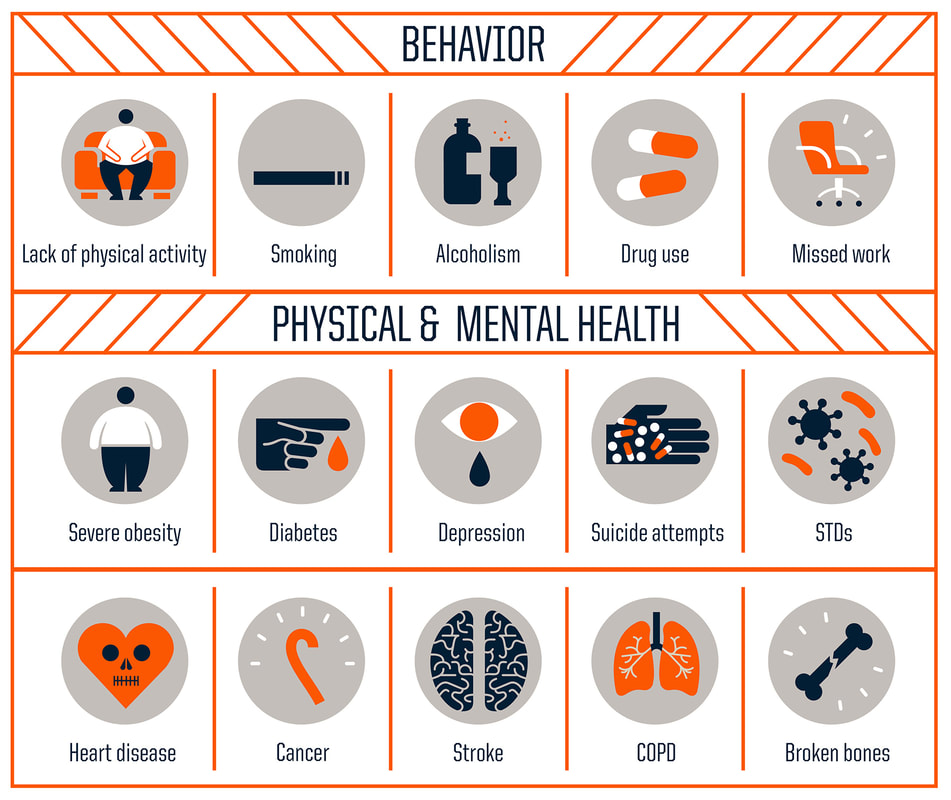What is ACEs ?
|
Adverse Childhood Experiences |
Adverse Childhood Experiences (ACEs) are negative occurrences in childhood, including abuse, neglect or household dysfunction, which are linked to compromised health and well-being in adulthood. These negative experience also negatively impact your students-- regardless of your zipcode.
Taking the ACEs quiz will make help make the topic real for participants- Link to quiz
A study by the CDC, Center for Disease Control, looked at these negative occurrences in childhood and found a link to compromised health and well-being in adulthood.
How does this affect you and your students? Watch the video below.
Taking the ACEs quiz will make help make the topic real for participants- Link to quiz
A study by the CDC, Center for Disease Control, looked at these negative occurrences in childhood and found a link to compromised health and well-being in adulthood.
How does this affect you and your students? Watch the video below.
|
|
How Childhood Trauma Affects Health Across a Lifetime
Pediatrician Nadine Burke Harris explains that the repeated stress of abuse, neglect and parents struggling with mental health or substance abuse issues has real, tangible effects on the development of the brain. These effects have lifetime health consequences, and they affect a larger population than we might think. Run time: 15:59 minutes |
Types of childhood trauma
Five are personal— physical abuse, verbal abuse, sexual abuse, physical neglect, and emotional neglect.
Five are related to others in the household.
Five are related to others in the household.
|
What about in Wisconsin?
In 2010 the Wisconsin Child Abuse and Neglect Prevention Board looked at ACEs and its effects in our state. Prevalence: 58% of Wisconsin adults reported growing up experiencing one or more ACEs. Those reported having at least one ACE, and over one-third reported having 3 or more. Impact: As ACEs numbers increased, the likelihood of depression, cancer, diabetes, sexually transmitted diseases, alcoholism, drug use, smoking, ischemic heart disease, chronic bronchitis or emphysema, skeletal fractures, suicidality, and homelessness significantly increased as well. Source:Child Abuse & Neglect Prevention Board, Wisconsin.Gov |
What are those health risks?
According to the Adverse Childhood Experiences study, the rougher the childhood, the higher the score is likely to be and the higher the risk for various health problems later. Problems like those listed below.
How does this look in the classroom?
According child psychologist Hilit Kletter, of Stanford University's School of Medicine, reactions may vary:
- dazed, not paying attention
- trauma may be misdiagnosed as attention deficit hyperactivity disorder
- impulsive, acting out with anger or other strong emotions
- withdrawn, quiet, distracted
It doesn't need to stop here
|
In ACEs studies, "children with secure attachment relationships with their caregiver(s) are better able to regulate their responses to upsetting situations, compared to children with less secure caregiver attachments." childtrends.org Relationships and resilience are key.
|
Want to learn more ACEs? Click here for demographic info and prevalence from the 2010 study.





